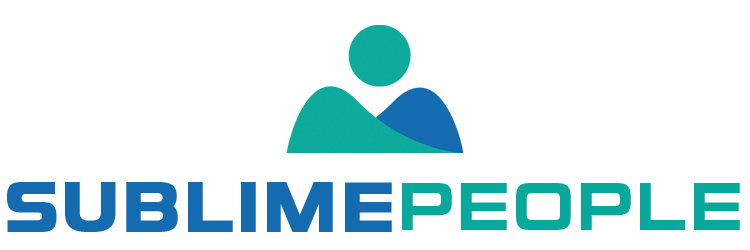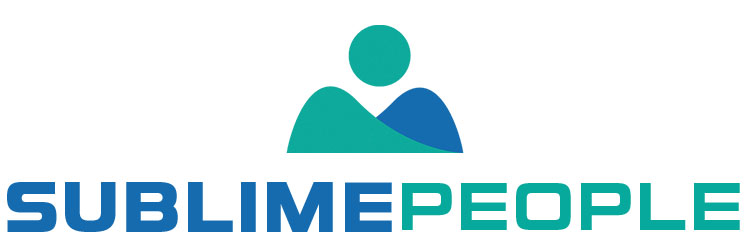Over the past decade, organizations have begun to recognize the importance of enhancing their candidate’s end-to-end experience. To leverage and implement strategic candidate experience strategies, it is essential to understand what Candidate Experience (CX) actually means and how key components come together to form an intentional CX program.
Let us explore the definition of Candidate Experience, and its essential components and discuss ways to implement candidate experience strategies for improvement.
In this Article:
What is meant by candidate experience?
Candidate Experience (CX) is defined as the sum of a job candidate’s perceptions, interactions, and experiences throughout the hiring process. It starts when a candidate initially discovers an organization, searches through job postings, applies for open roles, interviews with the hiring team, and continues long after the candidate receives a job offer.
CX is impacted by all interactions between job seekers and candidate-facing teams (e.g., recruiters, and HR personnel).
Why is the candidate experience important?
The candidate’s experience is an essential aspect of any successful hiring process. It’s a reflection on your business, how you treat job seekers, and what they can expect from the recruitment process if they choose to work with you.
Quality talent acquisition
A positive experience during the hiring process helps to attract more qualified job seekers and therefore increases the likelihood of a successful recruiting process. It also helps to ensure that the candidate who is ultimately hired is the best talent for the job.
Positive brand perception
A positive candidate experience can help to create a good impression on potential hires, which in turn boosts the employer brand’s reputation. On the other hand, a poor candidate experience during the recruitment process can damage your employer’s brand and make it harder to attract top talent.
Improved hiring processes
Enhancing candidate experiences can help to make the recruitment process more efficient and effective. This can lead to faster job fill times and a smoother candidate experience overall.
Increased retention rates
A good candidate experience is essential for improving retention rates, as it builds trust with new hires. This sense of loyalty leads to greater job satisfaction and longer employee tenure.
Satisfied job seekers
Providing a positive candidate experience results in job seekers having an overall better candidate experience which leads to increased job satisfaction.
How can you measure candidate experience?
Measuring candidate experience involves assessing the candidate’s journey through the recruiting process and collecting candidate feedback to understand their views and opinions. The hiring manager should also look at key performance indicators such as time-to-hire, candidate drop-off points, and candidate quality.
Key components of candidate experience?
When actively recruiting for open positions, one of the most important aspects to consider is to improve your candidate experience. In today’s job market, having a positive candidate experience can be an invaluable asset in Acquisition & Retention efforts. Let’s take a look at some key parts that businesses should prioritize when crafting their ideal candidate journey.
Skills gap analysis
Identifying candidate skills gaps is a key part of positive candidate experience, as it allows you to match candidate profiles with relevant jobs. This helps to ensure that qualified candidates are matched with the right positions, reducing candidate drop-off points.
Personalized feedback
Giving candidate feedback and providing an applicant tracking system (ATS) ensures that job seekers receive timely, personalized communication throughout their candidate experience journey. it is important to provide feedback to job candidates, both those who are hired and rejected candidates. Feedback helps candidates understand where they stand and what they can do to improve their chances of being hired in the future. This will help to make sure they feel valued as potential employees and better understand how their application is progressing.
Consistent communication
To create an optimal candidate experience, it’s important to establish a timeline and provide regular updates on the status of job applications. Keeping candidates informed every step of the way will help to build trust and reduce candidate drop-off points.
Real time feedback
Today’s job seekers expect more personalized candidate experiences. Offering real-time feedback such as in-person interviews, video calls, and personalized candidate portals can provide a significant boost to candidate engagement and help job seekers feel valued.
Follow up
A crucial part of candidate experience is following up with candidates. This can take many forms, but it’s important to be consistent with candidate communication and provide a clear timeline for job offers. Being proactive in candidate follow-up also ensures that candidates feel their time has been respected throughout the process.
Write clear job descriptions
A positive candidate experience starts with a clear and concise job posting. The job posting should provide a detailed description of the position and the qualifications required. When offering job opportunities, human resources should create job descriptions that accurately reflect the role. It should be comprehensive yet concise and provide a clear candidate experience definition of what skills, qualifications, and duties are required for the job. If any changes have been made to the candidate’s job description since it was posted, make sure to inform the best candidates in writing before they start working.
Job search
The recruiting team should craft a memorable candidate experience by making it as simple as possible. By guaranteeing that your careers page is easily found, either through social media channels, job boards, job postings, or even on the website itself – you’re allowing potential applicants to save time spent searching for opportunities! This step can jumpstart an incredible journey of positive experiences within your organization.
Job application
The candidate experience during the job search should encompass the job application process. This includes making sure that the job application process is efficient and straightforward, using an automated candidate tracking system to help identify qualified candidates quickly. You can also provide a clear job description and applicant instructions so that candidates know what they are applying for and how to complete their application correctly.
Interview process
In person interviews are at the core of candidate experience. An effective candidate experience should guarantee that the job seeker has an enjoyable time during their interview process. This can mean providing clear information about the type of interviews they will have, and setting specific expectations and timelines for each candidate. Additionally, you should ensure that your candidate assessment is fair and balanced.
Job offer
The candidate experience doesn’t end when the candidate receives a job offer. After receiving job offers, your candidates should have a clear picture of what they will gain from working with you, and how they can grow. If a candidate is not accepted for the job role, providing timely feedback and being transparent about why they were not selected is also essential to a candidate’s experience.
Experience Strategies for Improvement
Now that we have identified the most important elements of candidate experience, let’s explore how you can begin enhancing it. Here are several strategies to build a stellar candidate journey:
Applicant Tracking Systems
To ensure a fast and efficient candidate experience, you should use an Applicant Tracking System (ATS) to manage candidate applications. ATSs can help streamline the hiring process by automatically sorting and categorizing candidate profiles, simplifying communication between job seekers and recruiters, and helping employers make informed decisions quickly.
Candidate Relationship Management Systems
Another great way to improve candidate experience is by using candidate relationship management (CRM) systems. These systems allow recruiters to track candidate interactions and engagement, providing a more personalized candidate journey. CRM systems also allow recruiters to communicate with candidates in real time, ensuring an exceptional candidate experience from start to finish.
Interview Tools
Utilizing video interviewing tools not only lets candidates know that you value their flexibility, but also provides them with a unique peek into your organizational culture. Furthermore, it accelerates the interview process and makes it more data-driven since every candidate is asked the same set of questions. Video interviews also make the hiring process far more objective than conventional in-person counterparts. With technologies such as facial recognition and candidate sentiment analysis, recruiters can get a better overview of each candidate.
Mobile-Friendly Careers Page
Your job board should be accessible on both desktop and mobile devices. Today’s job seekers use their phones to apply for jobs, so you want to make sure your career site is optimized for mobile devices.
Onboarding Strategies
The candidate experience does not conclude after a successful interview. Throughout the selection and onboarding processes, they are still an applicant (even if chosen or shortlisted) instead of an employee. The swiftness with which background checks can be completed, immediate feedback given on the offer, and simple joining formalities all contribute to positively shaping their perception of your organization in this last leg of recruitment. Smooth onboarding processes make the candidate experience more comfortable and reassuring.
Induction Mechanisms
Once the candidate is onboarded, the induction process is essential to providing an effective candidate experience. It should entail clear messaging on the employee value proposition and company culture that you are offering. Furthermore, it is important to ensure that they understand their job duties and roles to help them hit the ground running.
Candidate Feedback
Another great way to measure candidate experience is to ask job seekers for feedback. This allows you to better understand candidate sentiment and identify areas of improvement. You can leverage candidate feedback surveys, focus groups, and other candidate experience measurement tools to gain insights into their experiences throughout the hiring process.
Conclusion
Poor candidate experience can cost businesses greatly, from lost revenue to high turnover rates. To avoid these costs, employers should strive to improve the candidate experience. By implementing the strategies mentioned above, you can begin to create a job seeker experience that resonates with job seekers and helps build your employer brand. Ultimately, it’s the candidate experience that will set you apart from the competition and position you as an employer of choice.




